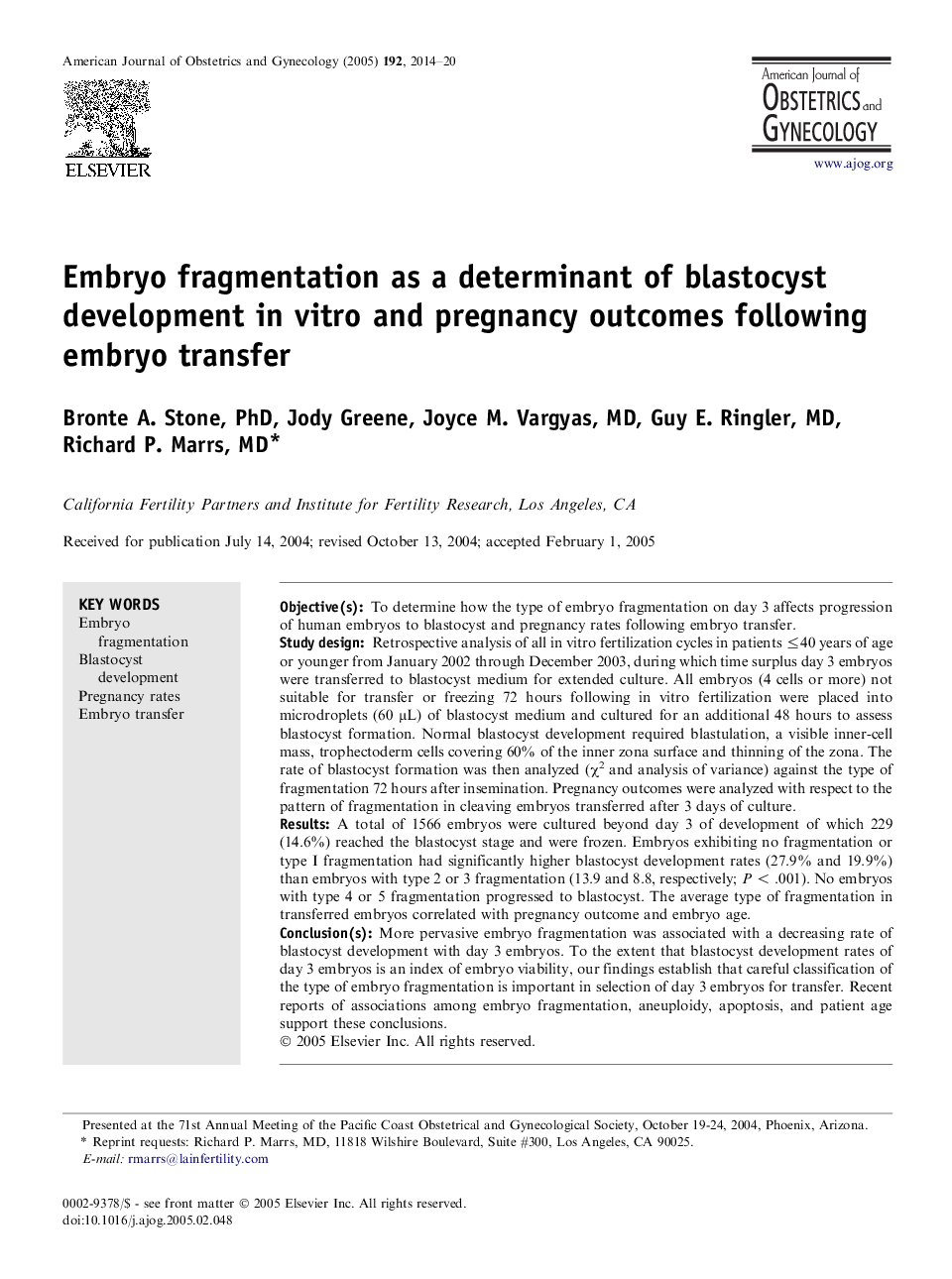| Article ID | Journal | Published Year | Pages | File Type |
|---|---|---|---|---|
| 3442937 | American Journal of Obstetrics and Gynecology | 2014 | 6 Pages |
Objective(s)To determine how the type of embryo fragmentation on day 3 affects progression of human embryos to blastocyst and pregnancy rates following embryo transfer.Study designRetrospective analysis of all in vitro fertilization cycles in patients ≤40 years of age or younger from January 2002 through December 2003, during which time surplus day 3 embryos were transferred to blastocyst medium for extended culture. All embryos (4 cells or more) not suitable for transfer or freezing 72 hours following in vitro fertilization were placed into microdroplets (60 μL) of blastocyst medium and cultured for an additional 48 hours to assess blastocyst formation. Normal blastocyst development required blastulation, a visible inner-cell mass, trophectoderm cells covering 60% of the inner zona surface and thinning of the zona. The rate of blastocyst formation was then analyzed (χ2 and analysis of variance) against the type of fragmentation 72 hours after insemination. Pregnancy outcomes were analyzed with respect to the pattern of fragmentation in cleaving embryos transferred after 3 days of culture.ResultsA total of 1566 embryos were cultured beyond day 3 of development of which 229 (14.6%) reached the blastocyst stage and were frozen. Embryos exhibiting no fragmentation or type I fragmentation had significantly higher blastocyst development rates (27.9% and 19.9%) than embryos with type 2 or 3 fragmentation (13.9 and 8.8, respectively; P < .001). No embryos with type 4 or 5 fragmentation progressed to blastocyst. The average type of fragmentation in transferred embryos correlated with pregnancy outcome and embryo age.Conclusion(s)More pervasive embryo fragmentation was associated with a decreasing rate of blastocyst development with day 3 embryos. To the extent that blastocyst development rates of day 3 embryos is an index of embryo viability, our findings establish that careful classification of the type of embryo fragmentation is important in selection of day 3 embryos for transfer. Recent reports of associations among embryo fragmentation, aneuploidy, apoptosis, and patient age support these conclusions.
